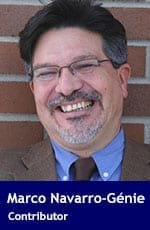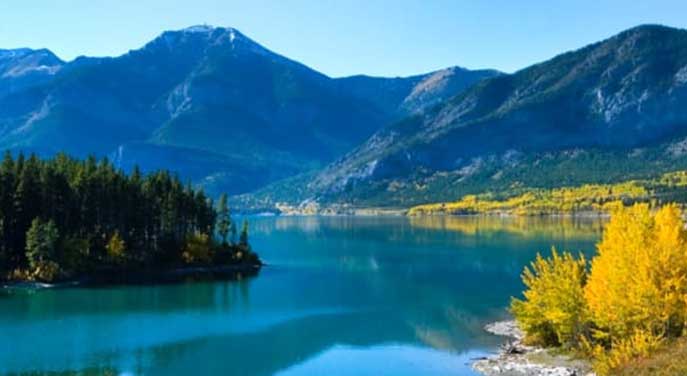 Rising costs to operate Alberta’s Kananaskis parks should come out of the province’s health budget.
Rising costs to operate Alberta’s Kananaskis parks should come out of the province’s health budget.
As soon as the provincial government imposed a lockdown in March 2020, Albertans headed outdoors in greater numbers than ever.
However, the province and municipal governments soon restricted outdoor gatherings as well. Recall the hysterical complaints about seeing people walking in municipal parks or children in playgrounds.
When the stricter government-imposed confinements were lifted in May 2020, people once again flocked to the outdoors. The number of people using the mountain parks and wilderness areas west of Calgary increased significantly.
Problems naturally arose when the number of visitors nearly doubled from previous years. Issues included greater traffic, more injuries and a greater quantity of visible garbage.
It became difficult to find a parking spot even in remote Kananaskis areas. Parked cars often lined both sides of the highway for kilometres around popular trailheads, increasing the possibility of accidents.
Increased injuries led to a 51 per cent rise in the use of search and rescue services in Eastern Slopes parks.
It was not unusual to see people with inadequate footwear on the trails, unprepared for wilderness exploration. One doesn’t need expensive hiking boots, but flip-flops are dangerous for walking on sloped surfaces or across fields of scree, for example.
It was also not unusual to see people begging for water, dehydrated on hot days, having brought nothing to drink or snack on while tackling the arduous trails.
There was a blatant explosion of garbage. Hiking groups regularly complained on social media, and volunteers picked up and hauled out garbage.
The popularity of the parks became unsustainable, as Environment and Parks Minister Jason Nixon correctly assessed.
As a corrective measure, the Alberta government introduced Kananaskis user fees: $15 per day or $90 for a yearly vehicle pass.
User fees for access to the overused parks would seem like a sound market mechanism to tame demand.
But these are not normal times, nor is it a normal market. The high demand for outdoor activities springs from a need for physical activity and human interaction, provoked by government restrictions. The government closed nearly every other form of recreation, entertainment, social gathering, exercise and relaxation.
Constraining outdoor activities while the government is still curtailing most other forms of recreation and social interaction will further worsen the deteriorating mental health of so many.
The Organization for Economic Co-operation and Development (OECD) measured a fourfold increase in mental health problems among Canadians during the first few months of the pandemic. The repeated stop-and-go Alberta confinement rules have likely made it much worse 14 months later.
Calgary-Buffalo MLA Joe Ceci criticized the government’s decision to charge for access to the recreational wilderness areas. The NDP MLA stated that this only adds to the stress for working families during already stressful pandemic times. He’s correct to an extent.
However, Ceci is totally wrong on two accounts.
First, it’s not the pandemic that has torn through working Alberta families, crippling their capacity to earn, crushing their businesses, blowing their savings and sending them into a series of harmful behaviours, some of which have cost lives. All these ailments are the direct result of government policies.
Second, if Ceci were in government, the effect of the greater restrictions his party advocates would cause even more damage to Albertans’ businesses, jobs, families and mental health.
Government-imposed constraints in overwrought reaction to COVID-19 pushed Albertans to greater use of wilderness areas and outdoor parks. Demanding money from users as a remedy to the strain placed on the parks adds enormous insult to the economic and mental health injuries unleashed by killing their livelihoods.
The damaging use of parks would decline if there were suitable alternatives, so let’s end the excessive COVID-19 restrictions.
In the meantime, the costs of higher park traffic should be shouldered by the health-care budget. It’s a health matter. Physical activity and social interaction help Albertans cope with the economic and psychological hardships imposed by their government.
Claiming “medical advice,” the provincial government continues to restrict many options for essential social and physical activities. The excess costs associated with wilderness usage should therefore be medical costs.
Marco Navarro-Génie is a senior fellow with the Frontier Centre for Public Policy and the president of the Haultain Research Institute. With Barry Cooper, he is co-author of COVID-19: The Politics of a Pandemic Moral Panic (2020).
Marco is one of our Thought Leaders. For interview requests, click here.
The views, opinions and positions expressed by columnists and contributors are the authors’ alone. They do not inherently or expressly reflect the views, opinions and/or positions of our publication.
© Troy Media
Troy Media is an editorial content provider to media outlets and its own hosted community news outlets across Canada.

